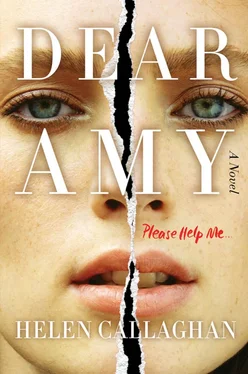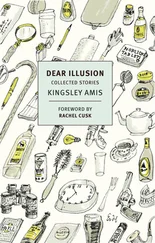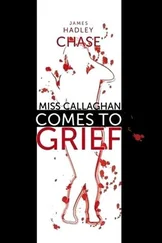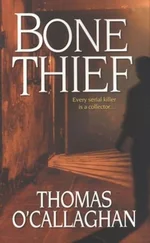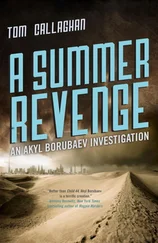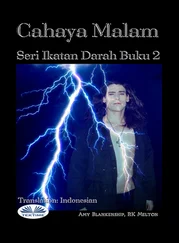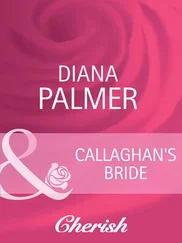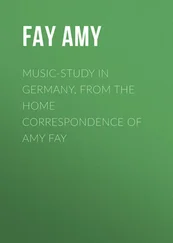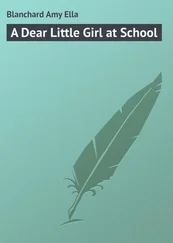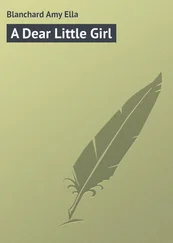I got up, staggering slightly. The car, some hundred yards down the road, was growing closer, nearer through the darkness and the veil of snow.
There were trees, iced in white, near the road. A tiny stand of woodland, an oasis of Fenland, stretching out under the sunless sky. I ran into them, as though pursued by wolves.

It had stopped snowing, but that was no help.
I had run and run for miles it seemed, through black trees sticking up like spikes through the white carpet, and then scrambled down into the narrow crack of one of the ditches lining a small lane, aware that on the flat Fens I would be visible for miles, even in the dark, and that the snow would hold on to my footprints. I was soaked to the bone, burning hot, scalding the snow into water that dripped over my skin and sifted through my clothing.
I paused. There was something like ground glass in my lungs, cutting me with each breath I took. The lane next to the ditch had come to a crossroads, both literal and otherwise.
Above me, the pitch-blackness was giving way to the inky points of stars. The muffled moonlight enjoyed a slightly freer reign. I listened intently, but there was nothing but the wind howling across the Fens.
Unless he’d had a flashlight, he must have lost me, I told myself.
I crouched ankle-deep in the thin ditch water, my feet numb. Another country road, lined with untidy hedges, stretched out from left to right, where it was joined by a footpath, which meandered into a diagonal bent from the fields at my left. A tiny wooden bridge with side slats crossed the water in front of me.
I recognized this bridge from somewhere – but where?
Just before the bridge was a pole, casting a sharp shadow now as the moon gathered its strength, with signs affixed to its top, and thrusting my hot hands into my wet pockets, where they ached with cold, I approached it.
The moonlight waned as I reached its base, but reappeared in a few seconds to tell me that Cambridge was four miles to the left, and Comberton two miles to the right. There was also a little sign, indicating that this was some kind of scenic walk.
Miles and miles of snow stretched away before me, meeting the stormy sky in a straight line – black meets white, with mathematical precision.
I stared up at the sign. Weren’t suicides buried at crossroads? So the ghost couldn’t find its way back home?
Each time the wind ruffled me it sent freezing gusts through my sodden clothes. I could hardly feel my feet any more, now that I’d stopped running. I glanced anxiously back but there was nothing there.
There was a house to my left, over the bridge, a big house, surrounded by walls. I blinked and held my breath. A single light was visible in one of the upstairs windows. It looked huge, rambling, with Jacobean chimney turrets standing stark against the moonlit sky, and big wrought-iron gates.
A house – oh thank God, thank God, some civilization at last! There was doubtless some well-heeled, slightly dotty family living inside, or at least some discreetly wealthy stockbroker or entrepreneur using it as his country retreat, or it might be another one of those language or residential schools that Cambridge is teeming with, full of harried supervisors and confused foreign teenagers with identical backpacks.
Someone who had a phone, at any rate. Though something about the place, with its Escher-esque eaves and iron gates, made me feel uneasy.
Or, as I observed tartly to myself, I could lie at the foot of the crossroads and freeze to death. Suicide or not, I think my ghost would find the way back home. She’d been very tenacious so far.
My teeth chattered. The house and I regarded each other. I don’t know why, but the thought of going through those gates and approaching the faded white door on its porticoed plinth filled me with vague dread. Though perhaps it’s not strange that I’ve been feeling somewhat paranoid lately.
The lane was thickly blanketed with snow. It would take me hours to get back to Cambridge, or even to reach Comberton in this condition, even if I didn’t die of exposure first or my pursuer caught up with me.
And anything could happen to Katie in that time, wherever she was.
I pressed my freezing hands into my armpits and shook my head, as if to clear it of irrational fear. The cold night air pinched my shoulder and my feet trod across the soft, deep snow to the closed iron gates.

At least I was out of the wind.
Walls of dark brick loomed up over my head. The yellow light coming out of the windows could not reconcile me to them. I scratched at my prickling scalp and my teeth chattered.
My shoes squeaked, leaving a watery trail of prints as I mounted the sandstone steps to the door.
There was a dusty bronze doorbell, the casing starting to crack with age. Now I was up close to the place, I understood what had made me think twice – there was an aura of shiftless neglect everywhere – from the weeds creeping through what had once been a careful, sweeping drive, to the cracked window casements and their crumbling putty, their distress plainly visible in the bright white motion sensor light that had come on the minute I opened the gates. A brand-new padlock with sharp steel edges on a shiny chain had swung from the gates themselves, unfastened, as though it had been opened in a hurry.
Comfort and aesthetics might have been neglected by the inhabitants, but there was an obviously new CCTV camera set up on a wall mount, pointed at the gates, and I could see its twin mounted on the side of the house adjoining the rambling brick wall surrounding the estate. Red lights flashed on them in heartbeat time. Perhaps someone was watching me right now.
I pressed the bell.
A loud pure double chime rang out through the house beyond, electronically amplified in some way, as though the people who lived here were used to being too far away to hear an ordinary doorbell.
I strained to listen for signs of life, pressing my ear to the faded white surface of the door paint. My cheek stung against it – I had grazed it when I fell out of the car.
There was absolutely nothing.
Long moments went by.
I tried once more, pressing the button and letting the chimes ring out, again and again. This was an emergency after all. I didn’t have to be intimidated by these people and their big house.
Then once more, I pressed my ear to the wood, trying not to weep.
This time, there was a noise.
I’m not sure I would have heard it in the usual run of things – if it had been daylight, and there had been rustling trees and birdsong, passing cars and aeroplanes. It was very tiny – an irregular rat-tat-tat , like someone tapping on something metal. The sound was buried deep within the house, more of a vibration than a noise.
Perhaps it was the pipes.
My ear still pressed to the door, I rang the bell again.
Again no ambient sounds, no sign of movement in the house, but that tiny rapping started again immediately, and its rhythm had an urgent, no, desperate, quickening – RAT-TAT-TAT-TAT-TAT …
A kind of horrible realization bloomed within me.
If I was right, there wasn’t a moment to lose.
I circled what I could of the house, looking for an open window or unlocked door – faint hope, but better than nothing. Most of the windows were resolutely curtained, and under their sills were old rotting wires, the remains of an alarm system. The new alarm system was centred in a blinking red box at the back of the building, undoubtedly complete with sensors and linked to the cameras, to protect the house in its dotage.
Читать дальше
